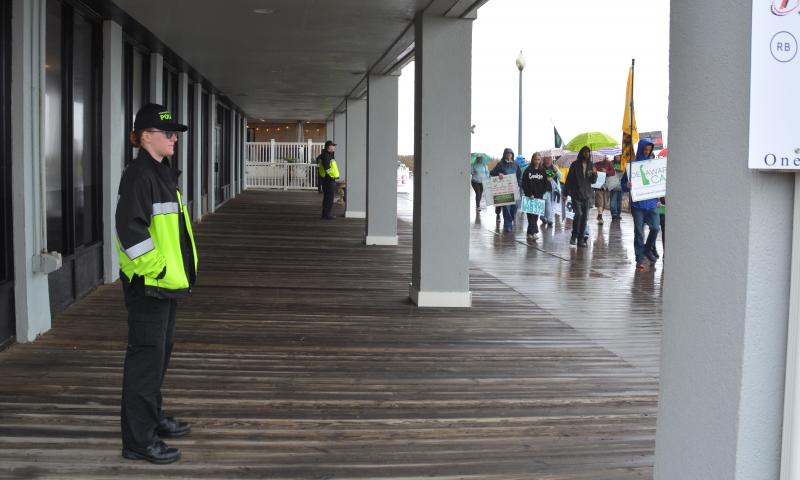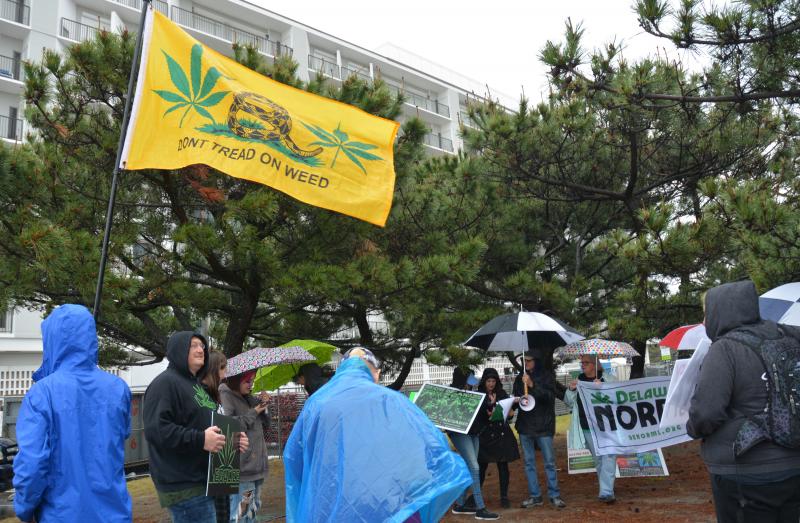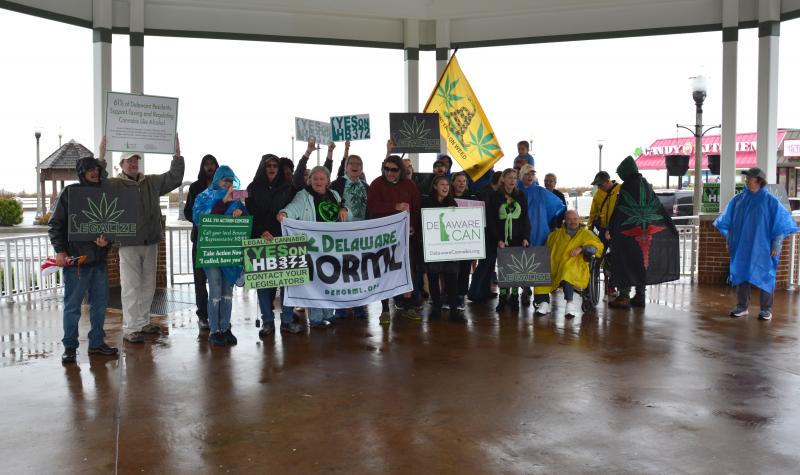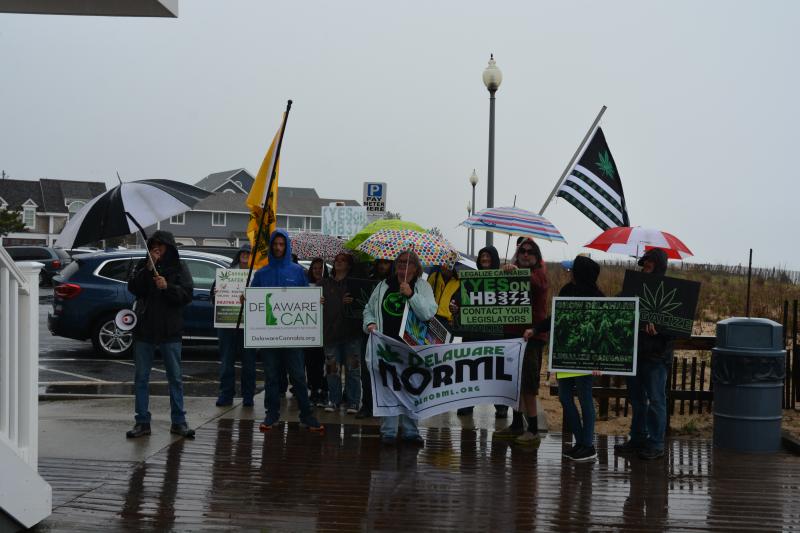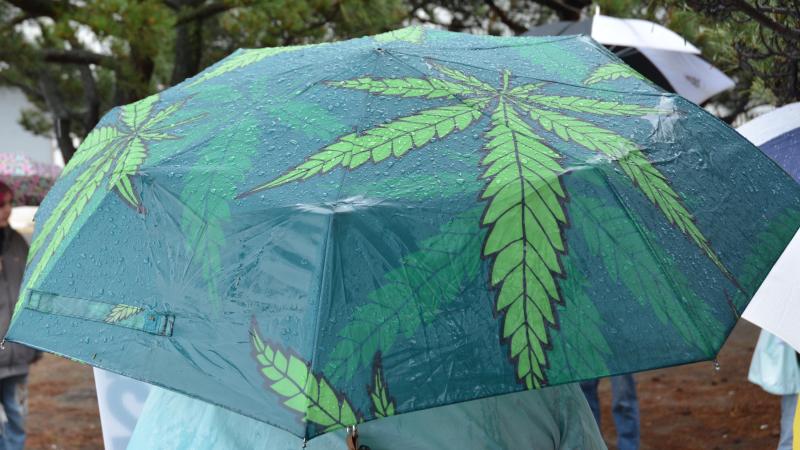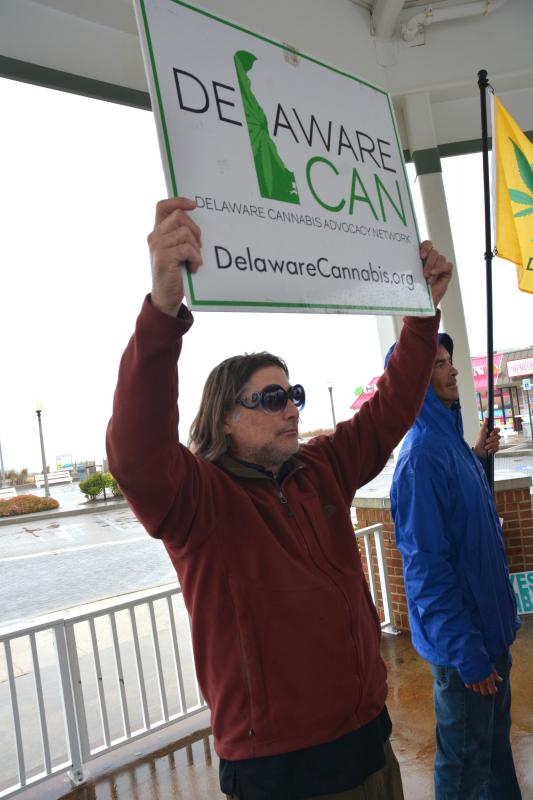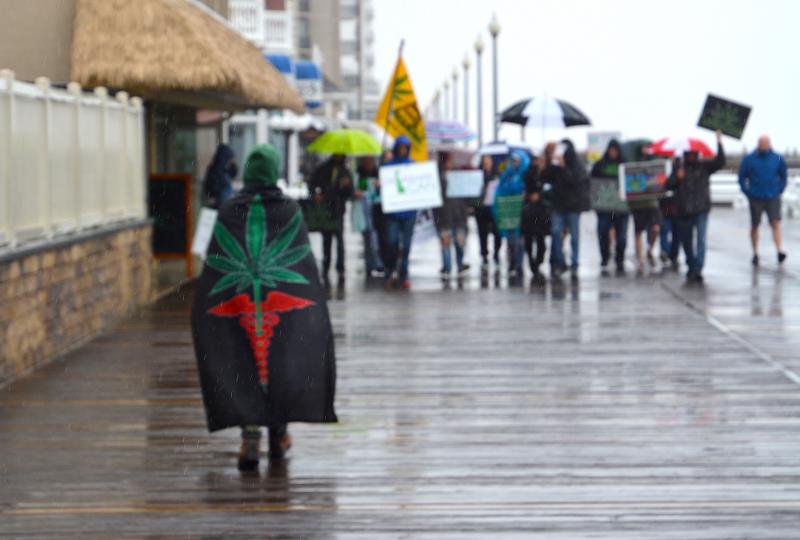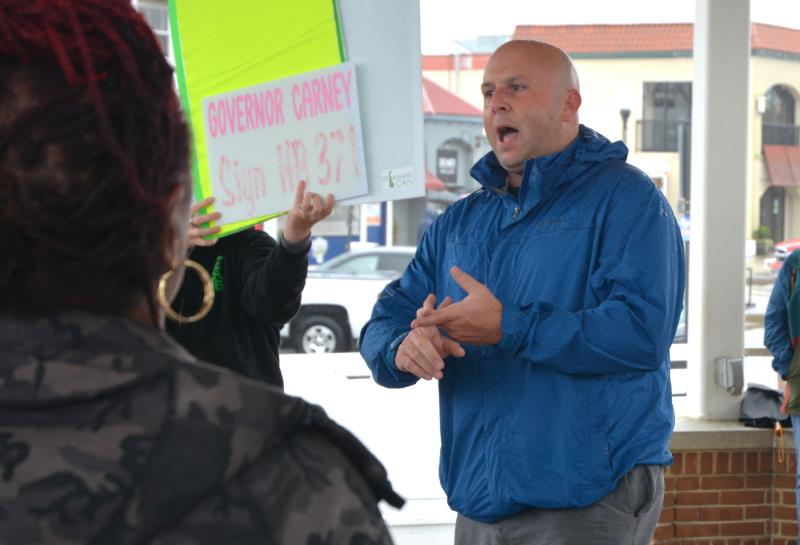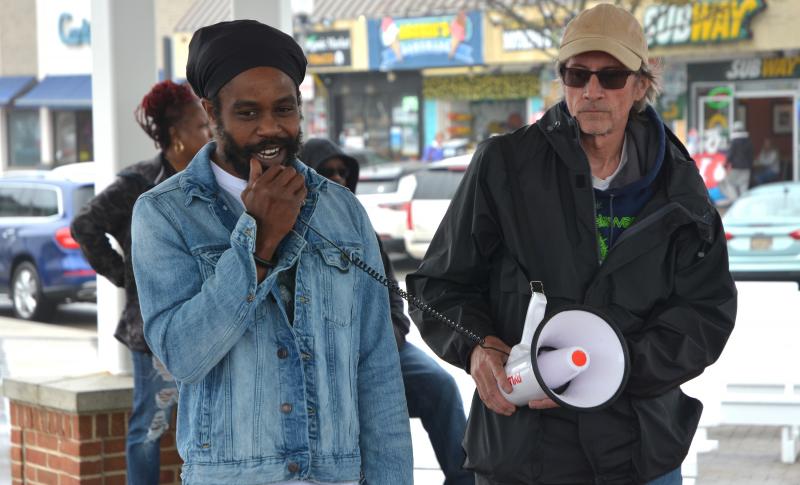Pot advocates: Gov. Carney, finish the job
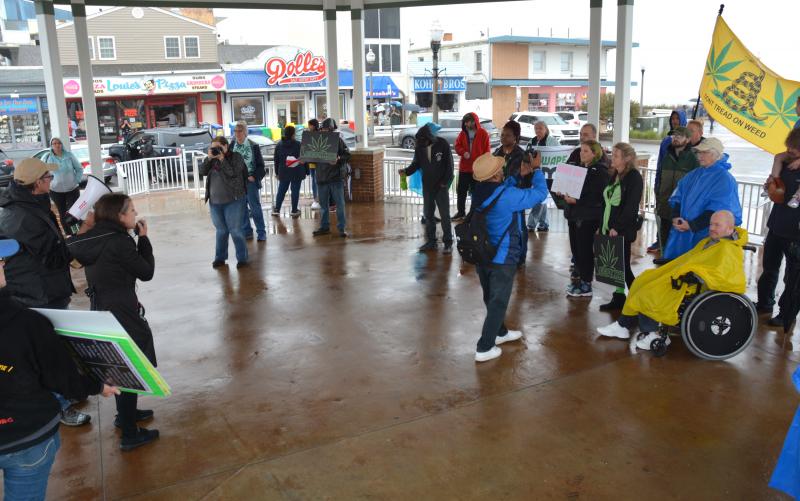
Less than 48 hours after legislation legalizing cannabis in Delaware passed through the General Assembly, advocates of the bill were in Rehoboth Beach calling on Gov. John Carney to finish the job.
This is a new set of circumstances, said Adam Windett, a criminal defense attorney from Dover and member of the Delaware Cannabis Advocacy Network. Sixty percent of the public, 60 percent of the House, 60 percent of the Senate support this change, he said.
“Now, it’s time to get the job done,” said Windett. “If this had been able to go to a voter referendum, it would have been done a decade ago.”
Advocates rallied in Rehoboth for the seventh annual Global Cannabis March. The event was scheduled to take place May 7, but it was postponed a week because of the Mother’s Day nor’easter.
A week later, it was still raining, but instead of advocates calling for change, they were calling for legislators to move forward along with the will of the people.
The bill legalizing cannabis, House Bill 371, passed through the General Assembly fairly easily. It needed a simple majority, but got more than 60 percent in the House and the Senate.
A second piece of legislation, House Bill 372, creates a legal, regulated marijuana industry in Delaware and needs a supermajority to be passed. Moving on from the governor, Windett called on legislators who throughout the years-long effort have said they weren’t in favor of legalization, but are in favor of taxing cannabis if it became legal.
There are more than enough votes, as long a legislators vote how they said they would, said Windett. He then listed Speaker of the House Rep. Pete Schwartzkopf, D-Rehoboth, Rep. Ruth Briggs Kings, R-Georgetown, Rep. Steve Smyk, R-Milton, and Rep. Bryan Shupe, R-Milford, as legislators who said they are in favor of a taxation system on cannabis.
In addition to Windett, a number of other advocates told their stories on how they came to feel cannabis should be legalized in Delaware.
Andrea Brown Clarke said following a car accident, her doctor would only prescribe her opioids for pain relief, but she didn’t like how they made her feel. She said she’d be in pain, take a pill, fall asleep, wake back up in pain and then take another pill.
Clarke said cannabis saved her life.
“People need to know, and the people who have been put in prison need to get out,” said Clarke.
Seaford native and Navy veteran Mariah Peacock described an event where she got pulled over and her car was searched because the cop was able to say he smelled marijuana, despite there not being any in the car. They got to her trunk, saw her Navy uniform and were shocked, she said.
All she was, was young, Black and driving, said Peacock.
Rastafarian Joseph Taylor said he spent 10 years of his life in prison for following his religious beliefs. As these policies have been lifted, he said, he’s been thinking about having been under their burden, he said.
“It’s been a tool for mass incarceration,” said Taylor.
As of press deadline May 16, HB 371 sits on the governor’s desk ready for action. As for HB 372, that bill has been reported out of the House Revenue & Finance Committee and the House Appropriations Committee. This bill has not yet been placed on the agenda for a full House vote.
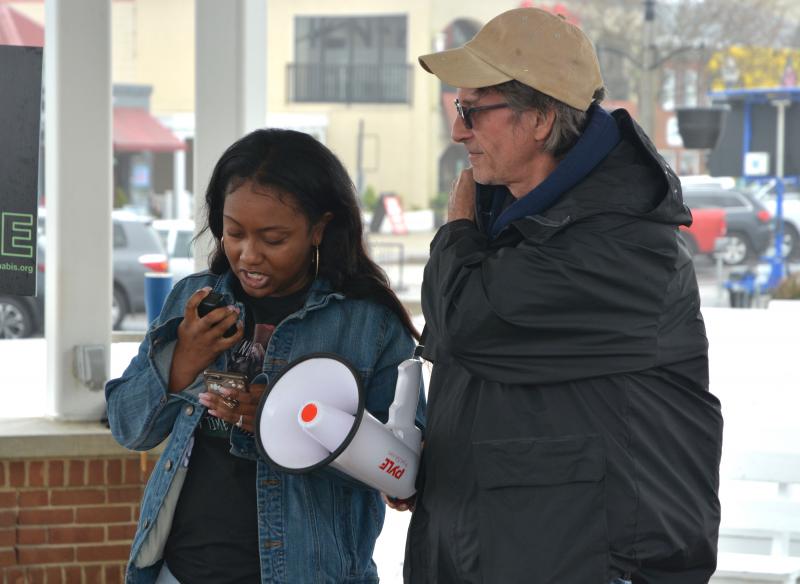
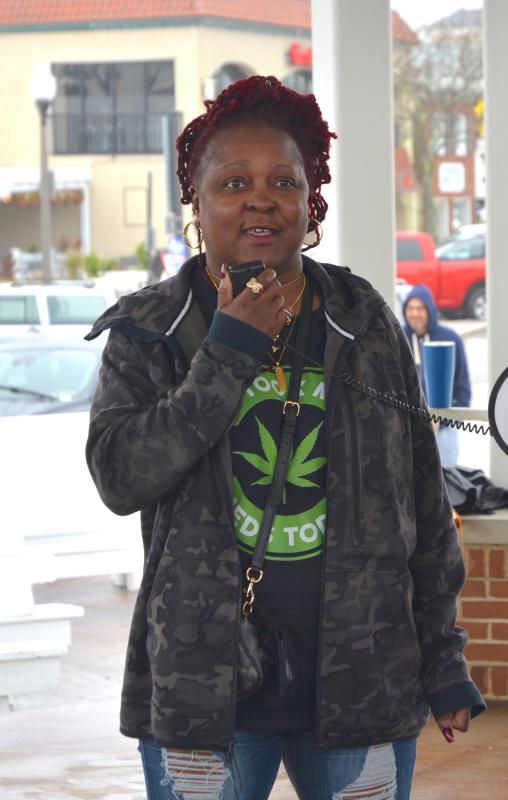
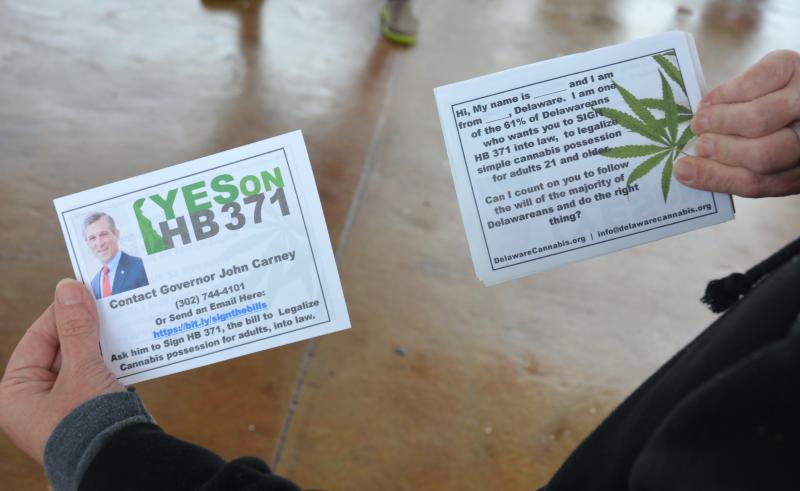
Chris Flood has been working for the Cape Gazette since early 2014. He currently covers Rehoboth Beach and Henlopen Acres, but has also covered Dewey Beach and the state government. He covers environmental stories, business stories and random stories on subjects he finds interesting, and he also writes a column called Choppin’ Wood that runs every other week. He’s a graduate of the University of Maine and the Landing School of Boat Building & Design.















